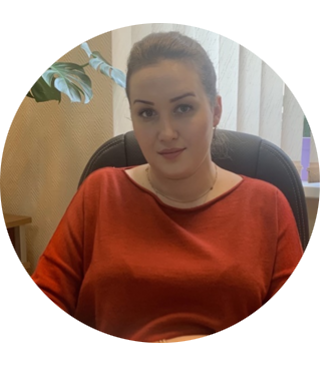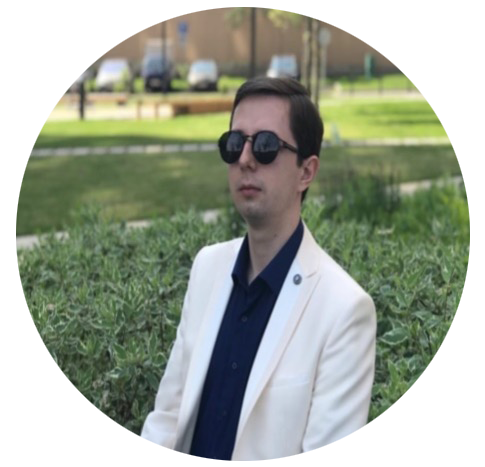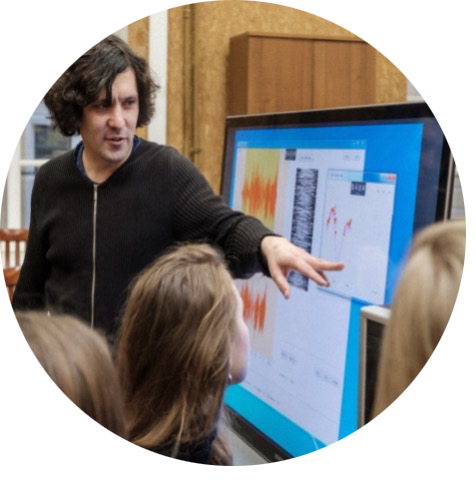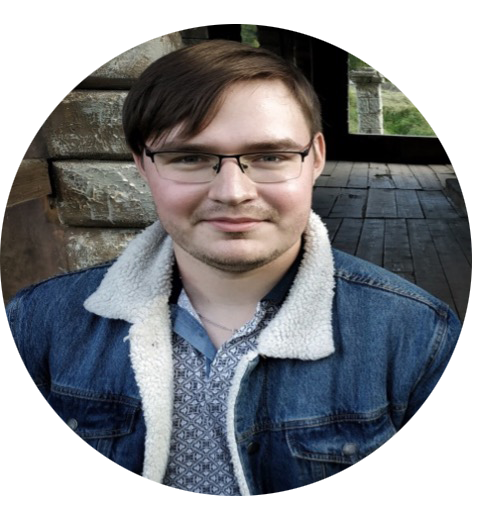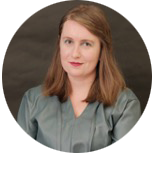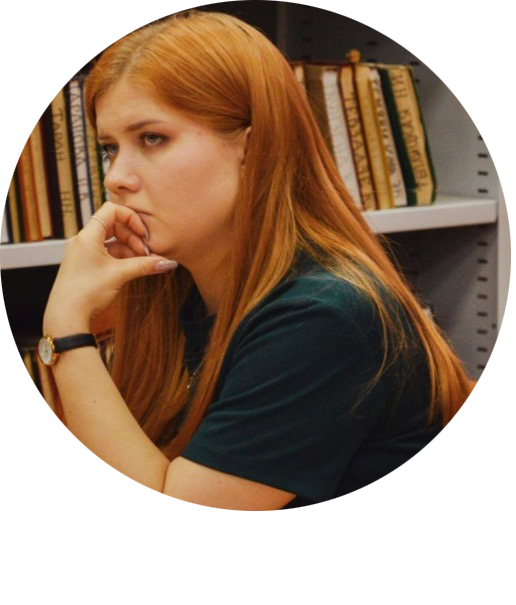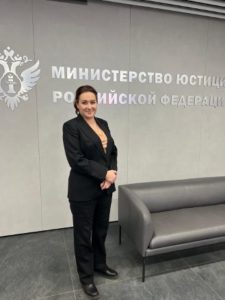
Conference at the Ministry of Justice of the Russian Federation
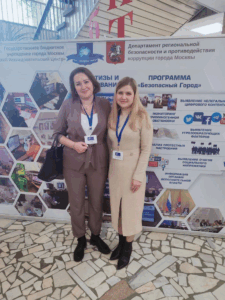
I All-Russian Assembly of Young Experts within the framework of the brand project ‘Young Expert’ (Pushkin State Institute of Russian Language)
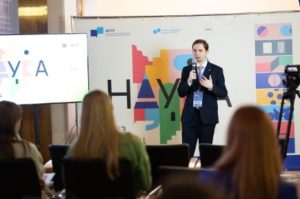
Lingua science fest within the framework of the festival ‘SCIENCE 0+’ (Moscow State Linguistic University)
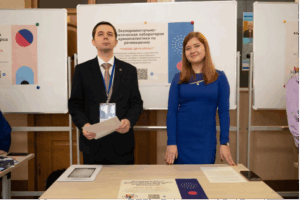
Lingua science fest within the framework of the festival ‘SCIENCE 0+’ (Moscow State Linguistic University)
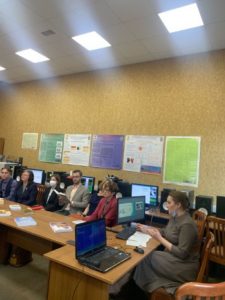
Open Labs Day at Moscow State Linguistic University
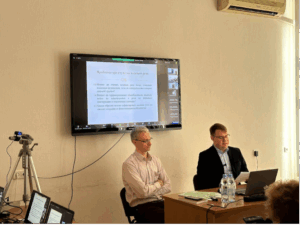
Conference ‘Actual Problems of Russian Dialectology’ (V. V. Vinogradov Institute of Russian Language)

Masterclass for school students
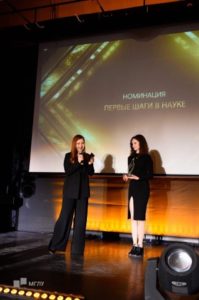
MSLU Scientific Award Ceremony ‘Golden Linguine’ (2023)
General information
The Laboratory was established in 2009 at the Department of Applied and Experimental Linguistics of MSLU.
The main activity of the Laboratory is the study of informative characteristics of voice and speech for the purpose of identification (recognition) of a person and profiling of his individual and personal characteristics (‘speech portraiture’) to solve practical problems of modern forensics by means and methods of applied linguistics.
Main objectives of the Laboratory
– research of the speech signal for the purpose of speaker identification (identification by voice: ‘he is not he’);
– voice and speech portraiture to establish individual characteristics of a person: gender, age, place of speech skill formation (or place of long-term residence), social status, profession, emotional state at the moment of conversation, spontaneity/preparedness of speech, etc..;
– establishing the verbatim content of a phonogram recorded in difficult acoustic conditions (e.g., in conditions of intense noise);
– implementation of interdisciplinary research projects on voice and sounding speech research;
– organisation of practice-oriented training in the direction of the Laboratory’s activity on the basis of Moscow Research Centres;
– development of scientific, methodological and training manuals in the field of forensic speech science;
– scientific expert research of controversial content on a commercial basis to solve the problems of applied and forensic speech science (linguistic, atvorological, phonoscopic analysis of text/verbal statements to identify signs of extremism and terrorism, bribery, drug propaganda, public calls to carry out any activity, etc.).
Expert scientific research on controversial content
Under the conditions of digitalisation of society, research works related to the study of ‘cybercrime’ in general and ‘cyber-objects’ in particular are becoming particularly important, which is of particular significance for solving urgent tasks in the field of cyber security of the state. The new form of speech interaction through the exchange of verbal, visual and auditory information in the information digital space requires the development of the latest approaches to the assessment of key linguistic and acoustic parameters that allow us to solve identification and profiling tasks on the material of spoken and written speech.
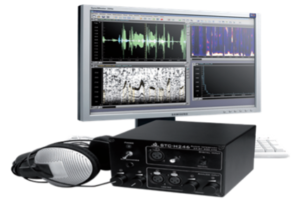
On the basis of the Laboratory, phonoscopic, linguistic and authorological expert studies of controversial content are carried out on a permanent basis on assignments from law enforcement agencies of the Russian Federation, legal entities and individuals on a commercial basis to solve the problems of applied and forensic speech science. Linguistic expert studies include diagnostic research of discourse for the presence in it of ‘conflictogens’ of various kinds, while phonoscopic and authored studies include identification and profiling of the author of an oral or written speech work based on a set of certain individual, informative characteristics of voice and speech.
Typical questions to be solved in the framework of expert research:
- Does the submitted text contain negative information about a particular person? If yes, in what form are they expressed: statements of fact, opinions, assessments, assumptions?
- Does the text submitted for research contain linguistic signs of speech impact, forming in the addressee an idea of exclusivity and superiority of any group?
- What are the communicative goals of the participants in the conversation?
- Are the samples of texts presented by one or several authors?
- What is the emotional state of the author of the text submitted for research and his emotional-modal attitude to the addressee?
- Does the phonogram contain the voice and speech of a particular person? If yes, which lines belong to him/her?
Research collabs
- International Association for Forensic Phonetics and Acoustics of Speech IAFPA (International Association for Forensic Phonetics and Acoustics, Birmingham, England, UK). Purpose of the collaboration: compliance with international professional standards in the field of forensic phonetic research.
- Russian Acoustical Society (RAO), Moscow, Russia. Purpose of the collaboration: professional consolidation, development and deepening of co-operation in the field of acoustic research, development of comprehensive relations with scientific, engineering and technical community, promotion of integration of Russian scientists and specialists into the world scientific community.
- Federal State Budgetary Scientific Institution Institute of Higher Nervous Activity and Neurophysiology, Russian Academy of Sciences, Moscow, Russia. Purpose of the collaboration: implementation of joint interdisciplinary scientific research.
- Moscow Scientific and Practical Centre of Narcology of the Department of Health of Moscow, Moscow, Russia. Purpose of the collaboration: implementation of joint interdisciplinary scientific research.
- Moscow Research Centre of the Department of Regional Security and Anti-Corruption of the Moscow City Government. Purpose of the collaboration: joint applied scientific research, as well as co-operation in training highly qualified specialists in the field of forensic expertology.
- Laboratory of Legal Linguistics of the Pushkin State Institute of Russian Language. Purpose of the collaboration: organisation and holding of joint international and all-Russian scientific events devoted to the topical problems of judicial speech science.
General direction of the research
- Research of forensically significant characteristics of voice and speech (oral and written);
- Development of methodology of scientific research of controversial content for solving problems of identification and profiling;
- Carrying out expert forensic research (phonoscopic, linguistic, autorological expertise).
Current research
- Investigation of speech determinants of emotional state of participants of procedural actions (victims, suspects, etc.);
- Investigation of objective signs of spontaneity/preparedness of spoken aloud speech;
- Development of methodology for linguistic research of new forms of data transmission;
- Creation of software methods to assist expert specialists in performing specific tasks of forensic speech science;
- Interdisciplinary study of the pragmatic effect of deviations from the linguistic norm in Internet marketing (RNF application);
- Study of the peculiarities of communicative behaviour of young people in the context of group Internet communication;
- Experimental study of the parameters of the impact of linguistic aspects of ‘cancellation culture’;
- Cloud methods of big data storage in relation to speech information content;
- Application of cloud technologies in solving linguistic problems;
- Complex neurophysiological profiling of meme information in relation to the perception of Russian- and English-language memes by native speakers of the Russian language (RSF application).

